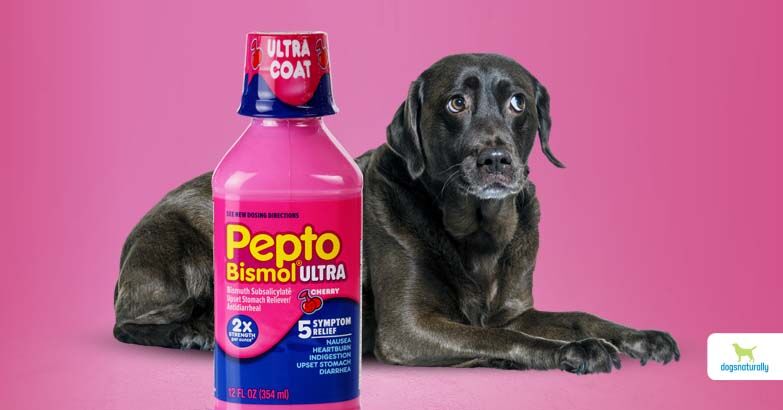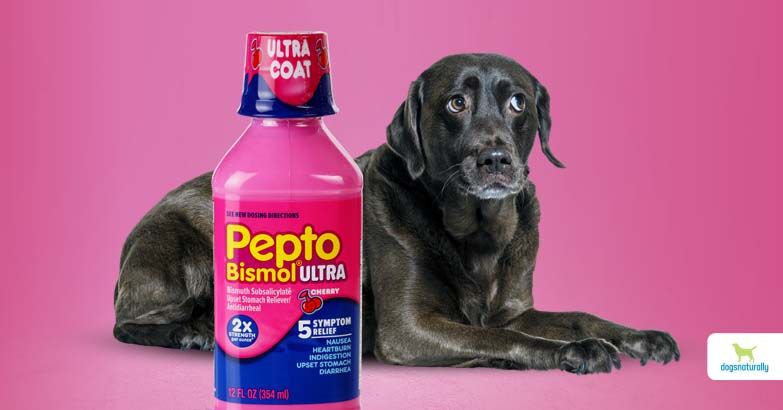Are you tired of dealing with your furry friend’s gassy moments? You’re not alone! As a dog parent, it’s frustrating to see your pup struggling with digestive issues, and wondering if there’s anything you can do to help. One common remedy that’s often mentioned is using Pepto Bismol for gas. But, can dogs really have this medication? In this blog post, we’ll dive into the answer and explore the ins and outs of giving your dog Pepto Bismol for gas.
Why it matters
Dogs can be prone to digestive issues, especially if they eat something that doesn’t agree with them or have a sensitive stomach. Gas and bloating are common problems that can cause discomfort, pain, and even embarrassment for you and your pup. As a responsible dog owner, you want to find the best solution to help your furry friend feel better. But, before reaching for any medication, it’s essential to understand what’s safe and effective for dogs.
What is Pepto Bismol?
Pepto Bismol is a popular over-the-counter medication designed to treat human digestive issues like nausea, vomiting, diarrhea, and upset stomach. The main active ingredient, bismuth subsalicylate, helps to neutralize excess stomach acid and soothe the digestive tract. While it’s effective for humans, the question remains: can dogs have Pepto Bismol for gas?

So, can dogs really have Pepto Bismol for gas? The short answer is no, it’s not recommended to give your dog this medication without consulting with a veterinarian first.
Why it’s important to consult a vet
Dogs and humans have different digestive systems, which means that what works for us won’t necessarily work for our furry friends. For example, dogs are more likely to experience gastrointestinal upset due to their unique anatomy and the types of food they eat.
The risks associated with giving Pepto Bismol to dogs
While Pepto Bismol might be effective in treating human digestive issues, it’s not without its risks when given to dogs. According to the American Kennel Club (AKC), giving your dog Pepto Bismol can lead to several complications, including:
- Stomach upset and vomiting
- Diarrhea and stomach cramps
- Blood in stool or vomit
- Potential kidney damage
A safer alternative: consulting with a vet
If your dog is experiencing digestive issues, it’s essential to consult with a veterinarian to determine the underlying cause. Your vet can recommend a safe and effective treatment plan tailored to your dog’s specific needs.
For example, if your dog has eaten something that doesn’t agree with them, your vet may suggest a bland diet or a medication specifically designed for dogs, such as metronidazole or loperamide.
The importance of monitoring your dog’s health
As a responsible dog owner, it’s crucial to monitor your furry friend’s health and behavior. If you notice any signs of digestive issues, such as gas, bloating, or vomiting, consult with your vet right away. Early intervention can help prevent more severe complications.
Remember, every dog is different, and what works for one pup might not work for another. Always prioritize your dog’s health and well-being by seeking professional advice from a veterinarian.
Get Expert Advice for Your Furry Friend
We are ready to answer your questions, day or night.
Start chatIn conclusion, while Pepto Bismol may seem like an appealing solution to your pup’s gas issues, it’s not recommended for dogs. The medication is specifically designed for human consumption and can be harmful if ingested by animals. Instead, consult with your veterinarian about the best course of action to help your furry friend feel better. They may recommend a combination of dietary changes, probiotics, or other natural remedies to soothe their digestive system.
Remember, it’s always better to err on the side of caution when it comes to your pet’s health and well-being. By working with your veterinarian and exploring alternative solutions, you can help your pup feel comfortable and happy in no time. So, next time your furry friend lets one rip, don’t reach for Pepto Bismol – instead, reach out to a trusted veterinary professional for guidance.
2 Week Old Puppy: A Bloated Condition: Have a new furry friend at home and concerned about their bloating? Discover the possible reasons behind this condition, from eating air to swallowing too much milk. Find out how you can help your little pup feel more comfortable.
What Are Bumps on Jaw in Back of Mouth: Have you noticed lumps or bumps on the back of your jaw? Uncover the possible causes, including cysts, nodules, and even oral health issues. Learn how to identify these bumps and what steps you can take to address them.



